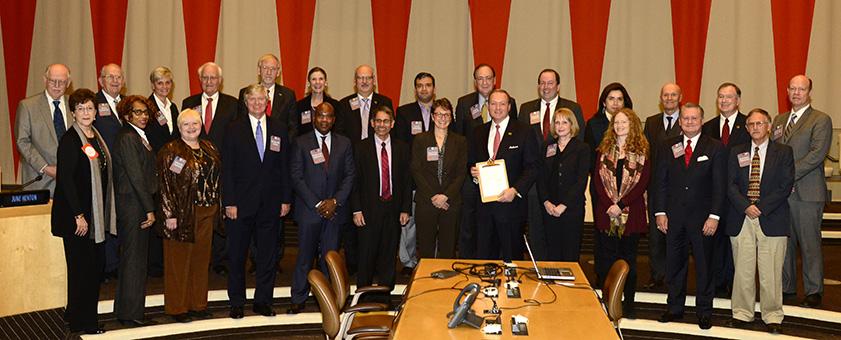According to UA News, The Hunger Forum and Public Signing Ceremony marked the first time universities around the world share a collective focus on ending food insecurity.
Affiliates of Universities Fighting World Hunger, a worldwide coalition of more than 300 colleges and universities, have met annually since 2006 to share ideas and best practices related to local and global hunger.
Leaders from more than 30 universities in the U.S., Canada and Central America gathered in February 2014 to discuss taking collective action against food insecurity and malnutrition. The pre-summit was organized by Auburn University’s Hunger Solutions Institute and co-sponsored by the UN Food and Agriculture Organization and the Association of Public and Land-grant Universities. Presidents Unite to Solve Hunger and the Presidents’ Commitment to Food and Nutrition Security are both direct results of the February meeting.
“[The University] has joined PUSH, an organization that was created by Auburn University to bring university leaders together to discuss taking collective action against food insecurity and malnutrition,” said UA media relations spokesperson Cathy Andreen. “Participation enables [the University] to join other universities in sharing their knowledge and research capabilities to address food and nutrition insecurity.”
Paula Gray Hunker is the director of strategy and policy at Hunger Solutions Institutes at Auburn University. She said Auburn and the University have already worked together on a few initiatives that benefitted not just their surrounding communities but also people who are impacted by food insecurity throughout Alabama.
Participation in PUSH enables members to share their collective knowledge in areas where hunger is historically addressed at academic institutions: teaching, research, outreach and student engagement. One of the first action items in the Presidents’ Commitment to Food and Nutrition Security is an inventory and mapping exercise so all schools can register their food and nutrition security work in these four major areas.
“The University of Alabama took a leadership role in this effort,” Hunker said. “Working with its food service provider and the Food Bank, they opened a significant number of new sites around the Tuscaloosa area in 2013 and even more in 2014.”
Andreen said UA experts would share their knowledge and research with researchers from other institutions to help address the critical issue of global food insecurity.









